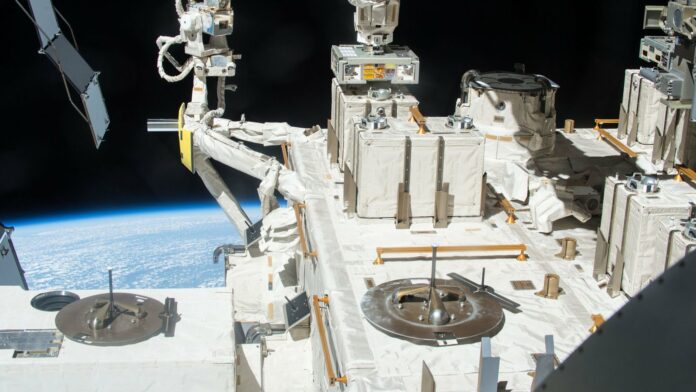The study provides support for one proposed origin of life on Earth – that it could have originated from an alien planet.
Bacteria could survive the extreme radiation and temperature fluctuations in the vacuum of space to land on another planet and begin reproducing there, according to a new study.
This is one such theory for how life began on Earth, known as panspermia, in which it initially arrived from outer space rather than resulted from self-replicating molecules which naturally developed here on this planet.
To prove that microbes could survive in space, Professor Akihiko Yamagishi of the University of Tokyo placed radioresistant Deinococcus bacteria in exposure panels outside of the International Space Station.

Professor Yamagishi and the Tanpopo astrobiology team have now published the results of their experiment in the journal Frontiers in Microbiology.
They found that when the bacteria were stored in thick aggregates, the dead bacteria on the surface can provide sufficient protection for the bacteria beneath them for several years.Advertisement
They used samples of different thicknesses which were exposed to space for up to three years, after which they found that all aggregates thicker than 0.5mm were able to partially survive being exposed to space.
The researchers estimated that a pellet thicker than 0.5mm could have potentially survived for 45 years on the ISS – and they believe a pellet 1mm thick could potentially survive up to eight years in outer space conditions.
“The results suggest that radioresistant Deinococcus could survive during the travel from Earth to Mars and vice versa, which is several months or years in the shortest orbit,” said Professor Yamagishi.
Previous experiments have proven that bacteria could survive in space if shielded by a rock, but the new study is the first to confirm that bacteria could survive through space in the form of aggregates.
However, as the University of Tokyo warns, “while we are one step closer to proving panspermia possible, the microbe transfer also depends on other processes such as ejection and landing, during which the survival of bacteria still needs to be assessed”.
SkyNews

